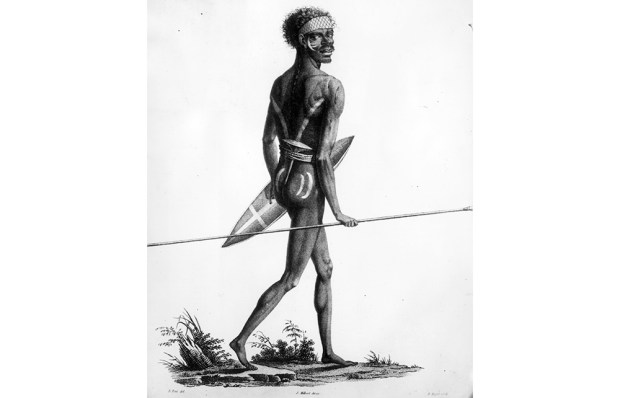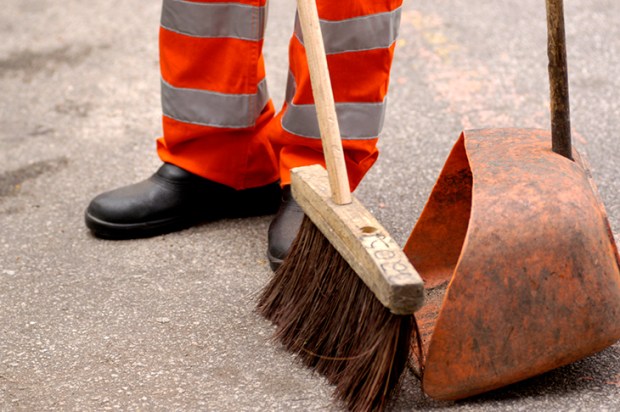O wad some pow’r the giftie gie us, To see oursels as ithers see us! said Robbie Burns. And nobody is keener to see how others see them than Australians. It took our participation in a couple of world wars for most other countries to form any view of us at all, though. The qualities which informed that view – toughness, self-deprecating humour and a larrikin disrespect for officialdom and authority – were ones we were happy to own, and when the mythmaking of Paul Hogan and Steve Irwin monetised them for international audiences nobody really complained.
But by that stage, thanks mainly to Clive James, Barry Humphries and Germaine Greer, British audiences had pretty much kicked the cork-hatted Outback cliché into touch, and as for a larrikin disrespect for officialdom and authority, well, we disabused everybody else of that notion very publicly in our craven capitulation to the world’s most draconian Covid strictures.
So what’s left? Well, in one respect the Pommy view of us hasn’t changed since I was a child. Like many Brits of my vintage, I learnt to swim after my parents saw a TV ad in which the UK’s most popular resident Aussie of that time, Rolf Harris, told them it might save my life. This resulted in my first real sporting achievement: the ability to breaststroke one 25-yard length of our over-heated, over-chlorinated indoor local pool faster than any of my primary school classmates. But my supremacy was short-lived, and appropriately enough it was another Aussie, the diminutive daughter of an Australian family who lived briefly in our small Cheshire town, who displaced me. I was eight years old at the time, and the fact that I can still remember this girl’s name (Lee Ebling – don’t be a stranger), shows how traumatised I was by the experience.
But nobody else was surprised, because thanks to Murray Rose, Dawn Fraser & Co, Australia was by then well established as the world’s greatest swimming nation, dominating the Olympic pool podium the way the Chinese dominated ping-pong. So Australia’s phenomenal swimming gold haul in Paris last month was business as usual as far as British audiences were concerned. I know this because I was in the UK at the time, and watched everything on the BBC, and the way their commentators talked about Australian swimmers was borderline offensive. As if just being born Australian had given the likes of Mollie O’Callaghan, Ariarne Titmus, Kaylee McKeowan and Shayna Jack an unfair advantage in the pool in much the same way that being born with XY chromosomes had given Algerian and Taiwanese woman an unfair advantage in the boxing ring.
I was staying, as I usually do in London, at the gentlemen’s club I joined 20 years ago. Not because I like wearing a jacket and tie to breakfast (strictly enforced), or because I abhor the company of women (members have twice in the last five years voted against allowing them to join) but because it is less than half the price of any West End hotel. But each time I check in I wonder if it will be the last. If white guilt activists ever decide to target buildings instead of statues, the East India Club, being the birthplace of the organisation which invented British colonialism, would be right at the top of their to-do list. And each time my taxi from Paddington swings into St James Square I half expect to see at best, a tent protest behind the park railings, and at worst a pile of smoking rubble where my driver drops me off.
For the record, I voted in favour of extending the franchise to women on both those occasions. And should I ever decide to discontinue my membership, I might well express my dissatisfaction with the status quo the last time I stay there by walking into the breakfast room – the same room where George III was told about Napoleon’s defeat at Waterloo – dressed not in a jacket and tie, but a posh frock and a nice pair of heels. If I identify as a woman while I am still a long-standing member, it will be a whole new kind of Waterloo for them.
Got something to add? Join the discussion and comment below.
You might disagree with half of it, but you’ll enjoy reading all of it. Try your first month for free, then just $2 a week for the remainder of your first year.














